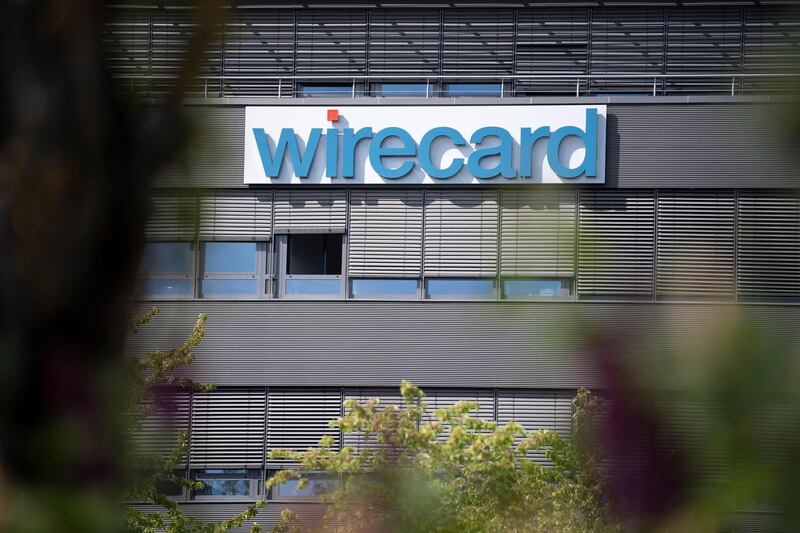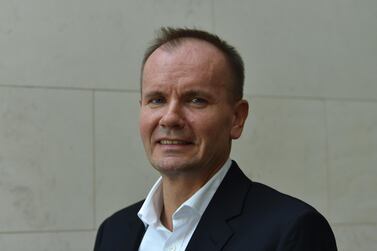None of the $2.1 billion (Dh7.7bn) missing from scandal-hit German payments firm Wirecard appears to have entered the Philippine financial system, the central bank said on Sunday.
Bangko Sentral ng Pilipinas governor, Benjamin Diokno, said in a statement the South-East Asian country’s biggest lenders, BDO Unibank and Bank of the Philippine Islands, suffered no losses, despite having been named in connection with the missing funds.
Wirecard chief executive Markus Braun, who built the company into one of the hottest financial technology investments in Europe and a rare tech champion for Germany, quit on Friday as the company faces a cash crunch after saying it may have been the victim of fraud.
The search for the missing cash hit a dead end in the Philippines, but the two Philippine banks have said documents purporting to show Wirecard had deposited funds with them were false.
“The initial report is that no money entered the Philippines and that there is no loss to both banks,” Mr Diokno said, though he added that the central bank was investigating.
“The international financial scandal used the names of two of the country’s biggest banks – BDO and BPI – in an attempt to cover the perpetrators’ track,” he said.
BDO and BPI have stated that Wirecard was not their client and that they had no business relationship with the German firm, Mr Diokno said.
BPI, however, told Reuters on Saturday that it had suspended an assistant manager whose signature appeared on one of the fraudulent documents.
BDO told the central bank that it appeared one of its marketing officers had fabricated a bank certificate.
Mr Diokno reiterated the Philippine banking system was in a strong position going into the coronavirus pandemic and well-capitalised.
Meanwhile, Wirecard’s has scrambled to secure a financial lifeline from its banks. Questions over accounting saw it crash in value, leaving the firm facing a looming cash crunch and mired in allegations of fraud.
Mr Braun resigned just hours after releasing a video blaming Wirecard’s problems on fraud, saying he accepted “responsibility for all business transactions lies with the CEO”.
Wirecard, which has seen nearly €10bn (Dh41.1bn) wiped off its market value in just two days, had been a welcome technology success story in Germany, a country better known for its prowess in heavy industry.
But it has been under scrutiny since a whistleblower alleged that it owed its success in part to a web of sham transactions, a scandal that some fear will now damage Germany’s reputation.
Wirecard said in a statement that James Freis, a former compliance officer at Germany’s stock exchange, had been appointed as the firm’s interim chief executive.
It is holding emergency talks with banks to secure a financial lifeline, three people with knowledge of the matter said, after its auditor, EY, would not sign off on its accounts.
On Thursday, Wirecard warned that loans of roughly €2bn could be terminated if its annual report is not published on Friday and it has until evening to strike a deal with the banks, the sources told Reuters.
Wirecard’s share price dropped by as much as 50 per cent on Friday in a continuation of Thursday’s rout, with the stock hitting €20, a far cry from the €200 it was priced at when it joined Germany’s prestigious blue-chip Dax index in late 2018.
“Wirecard is a company that has caused serious damage to the credibility and trust of the Dax with international investors. This will have significant consequences for the image of the German capital market,” Carola Rinker, a German economist specialising in accountancy fraud, said.
Wirecard’s shares tanked again on Friday after two Philippine banks, BPI and BDO, said it was not a client of theirs and alleged that documents had been falsified.
Mr Braun, who has aggressively defended Wirecard against allegations of accounting fraud, had earlier said that the firm could itself have been the victim, without giving details.
“Attempts by Wirecard to appear as the victim in the missing €1.9bn have been undone within hours of Wirecard management’s video yesterday evening,” said Neil Campling at Mirabaud, the only analyst to have a price target of zero.
EY had regularly approved Wirecard’s accounts in recent years, and its refusal to sign off for 2019 confirms failings found in an external probe by KPMG in April.
While Wirecard did not give any details of where the missing money is alleged to have gone, statements by the two Philippine banks denying any involvement spooked investors in the firm.
BPI said Wirecard was not a client, adding: “their external auditor presented to us a document that claimed that they are a client. We have determined that the document is spurious. We continue to investigate this matter,” BPI said in a statement.
The Wirecard scandal, which was extensively investigated by the Financial Times and has been the subject of several reports by so-called short sellers, has also damaged the standing of German financial regulator Bafin.
“Bafin looked on for far too long,” Fabio De Masi, a German lawmaker said, adding that the agency must be improved.







